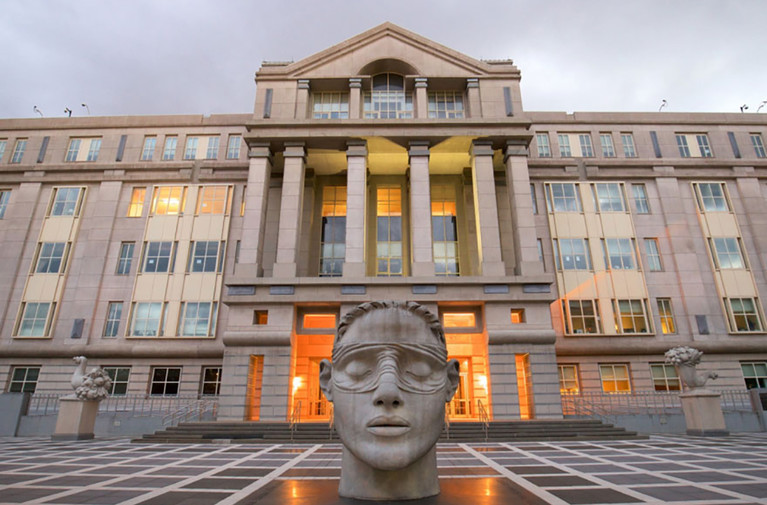Floodgates Open? Alina Habba’s Standing Challenged in Court
August 4, 2025
A legal storm is brewing in New Jersey as Alina Habba, President Donald Trump’s pick for acting U.S. Attorney for the District of New Jersey, faces a challenge to her prosecutorial authority that has halted federal court proceedings and raised questions about the legitimacy of her appointment. The controversy, which erupted after federal judges declined to extend Habba’s interim term, could set a precedent for similar disputes nationwide, potentially opening the floodgates for further challenges to Trump administration appointees.
On July 22, 2025, a panel of New Jersey federal judges, led by Chief Judge Renée Marie Bumb, declined to extend Habba’s 120-day interim term as acting U.S. Attorney, instead appointing Desiree Leigh Grace, a career prosecutor and Habba’s first assistant, to the role. Hours later, Attorney General Pam Bondi fired Grace, and Trump withdrew Habba’s Senate nomination, appointing her as first assistant U.S. Attorney to keep her as acting U.S. Attorney. This maneuver, described as “irregular” and potentially unconstitutional by defense attorney Thomas Mirigliano, has sparked a legal battle that has disrupted court operations across the state.
The challenge began with a motion filed on July 27, 2025, by Mirigliano on behalf of Julien Giraud Jr., a defendant facing drug and gun charges. Mirigliano argued that Habba’s continued tenure violates the Federal Vacancies Reform Act, which prohibits individuals whose nominations have been submitted to the Senate from serving in an acting capacity unless they were the first assistant for at least 90 of the 365 days preceding the vacancy. Since Habba’s nomination was submitted and later withdrawn, Mirigliano contends that her appointment as acting U.S. Attorney lacks constitutional legitimacy, rendering all prosecutorial actions under her authority invalid. He requested that Giraud’s charges be dismissed or that Habba and her assistants be barred from prosecuting the case.
The motion led to immediate repercussions. On July 28, 2025, federal court hearings, grand jury proceedings, and plea deals across New Jersey were abruptly canceled due to uncertainty over Habba’s authority. U.S. District Judge Edward S. Kiel, in a Camden courtroom, called Mirigliano’s argument “nonfrivolous” and noted that many judges were pausing non-urgent criminal cases to avoid potential legal reversals if Habba’s appointment is deemed unlawful. The case was transferred to U.S. District Judge Matthew Brann in the Middle District of Pennsylvania due to conflicts of interest among New Jersey judges, who had voted to replace Habba.
On August 1, 2025, Judge Brann issued a 27-page ruling, deferring a final decision on Habba’s authority but denying the request to dismiss Giraud’s case outright, as the charges predated Habba’s tenure. However, Brann indicated that Giraud could be entitled to injunctive relief barring Habba and her assistants from prosecuting the case if her appointment is found to violate federal law or the Constitution. Brann described the Justice Department’s defense of Habba’s “special attorney” designation as having “extreme implications,” questioning the legality of the Trump administration’s workaround. Oral arguments are scheduled for August 15, 2025, leaving weeks of uncertainty that could prompt other defendants to file similar motions.
The dispute has broader implications. Since Habba’s interim appointment in March 2025, her tenure has been marked by controversy, including the disbandment of the U.S. Attorney’s Office Civil Rights Division and the dismissal of a long-running prosecution days before trial. Her office also filed charges against Democratic Representative LaMonica McIver and initially against Newark Mayor Ras Baraka, moves criticized as politically motivated by New Jersey’s Democratic Senators Cory Booker and Andy Kim, who blocked her Senate confirmation. Legal experts warn that if Brann rules against Habba, it could jeopardize ongoing prosecutions and indictments issued under her authority, potentially affecting cases filed since her term began.
The Trump administration remains defiant. Habba, in a July 24, 2025, X post, declared, “I am now the Acting United States Attorney for the District of New Jersey. I don’t cower to pressure. I don’t answer to politics. This is a fight for justice. And I’m all in.” Deputy Attorney General Todd Blanche and Attorney General Bondi have accused New Jersey judges of pushing a “left-wing agenda” by attempting to oust Habba. However, constitutional law professor Steve Vladeck has argued that the administration’s tactic violates federal law, as Habba’s prior nomination submission disqualifies her from acting status, regardless of its withdrawal.
As the legal showdown unfolds, New Jersey’s federal courts remain in limbo, with defense attorneys like Maria Noto, former president of the Association of Criminal Defense Lawyers of New Jersey, calling the situation unprecedented. The outcome of Brann’s ruling could not only determine Habba’s fate but also influence how the Trump administration navigates similar appointments, potentially reshaping the balance of power between the executive branch and the judiciary.
For ongoing updates on this case, visit Law.com or The New York Times.
